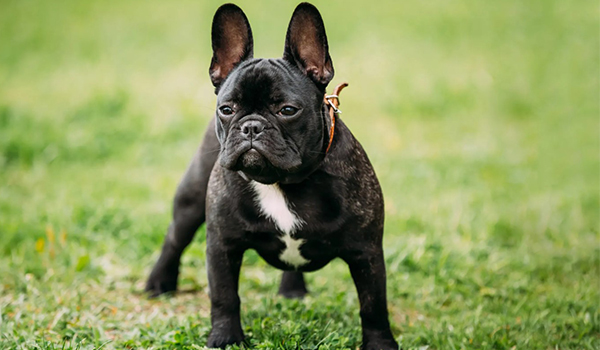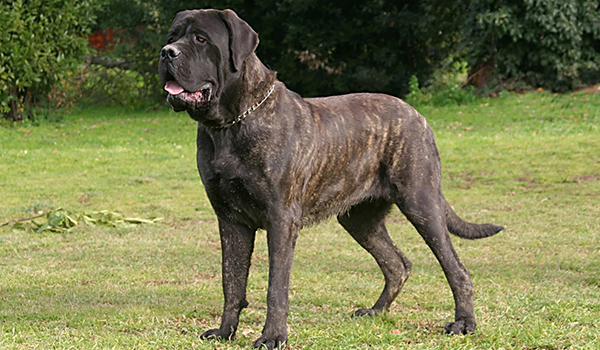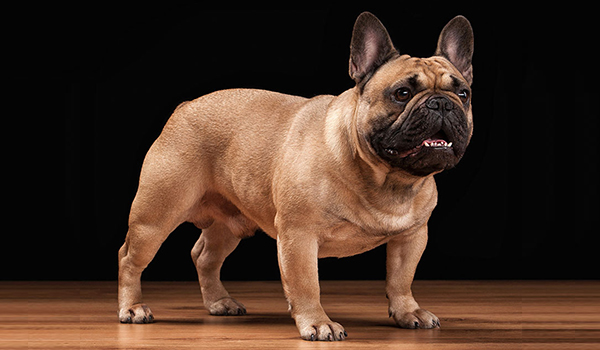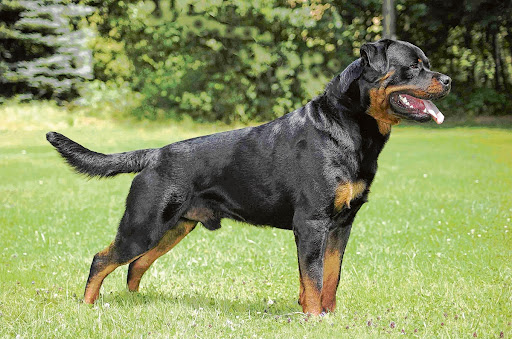
The Rottweiler is a breed of immense strength, unwavering loyalty, and profound confidence. With their powerful build, intelligent expression, and calm demeanor, they command respect and admiration. Historically known as the “Rottweil Butcher’s Dog,” they are a working breed through and through, combining the drive to work with a deep devotion to their family.
However, their power and protective instincts demand a responsible, experienced owner. This comprehensive guide will explore the reality of life with a Rottweiler to help you determine if you have the knowledge, leadership, and commitment to guide this magnificent breed to become the well-adjusted guardian and companion they are bred to be.
Breed Overview
- Group: Working
- Height: 22 – 27 inches (at the shoulder)
- Weight: 80 – 135 pounds
- Life Span: 9 – 10 years
- Coat: A straight, coarse, medium-length outer coat with a soft undercoat. The color is always black with clearly defined, rich tan markings on the cheeks, muzzle, chest, and legs.
A Brief History: The Roman Drover Dog
The Rottweiler’s history dates back to the Roman Empire, where their ancestors were used as drover dogs to herd cattle and guard military camps on long marches. As the Romans moved through Europe, these dogs settled in the German town of Rottweil, where they became essential to local butchers. They were used to pull carts laden with meat to market and to protect their owner’s earnings, often with money pouches tied around their necks—earning them the nickname “Rottweil Butcher’s Dog.”
Their popularity waned with the rise of railroads, but saw a resurgence in the early 20th century when their intelligence and temperament were recognized for police and military work. Today, they are cherished as loyal family protectors and versatile working dogs.

The Rottweiler Temperament: Confident, Calm, and Courageous
A well-bred, properly socialized Rottweiler possesses a stable and noble temperament. They are not hyperactive or overly demonstrative, but rather observant and self-assured.
- Loyal & Protective: Their devotion to their family is legendary. They are naturally protective and have a strong instinct to guard their home and people. This makes early and ongoing socialization critical to ensure this trait is balanced and appropriate.
- Confident & Calm: A good Rottweiler is confident without being aggressive. They are typically steady and calm in their home environment, with a “wait-and-see” attitude toward new situations.
- Courageous & Strong-Willed: They are fearless when the situation demands it and possess a strong will. This requires an owner who can provide firm, consistent leadership.
- Intelligent & Trainable: They are highly intelligent and eager to work, making them excellent candidates for advanced obedience, protection sports, and service work. They thrive when given a job.
- Aloof with Strangers: They are often reserved and discerning with people they don’t know. They are not typically immediately friendly and will assess newcomers from a distance.
Caring for Your Rottweiler
Exercise: A Working Dog’s Needs
Despite their calm indoor demeanor, they are powerful athletes that require daily physical and mental exertion.
- Daily Requirements: At least 60-90 minutes of dedicated activity daily.
- Types of Exercise: This should include:
- Structured Walks: Firm-leash walking that reinforces your leadership.
- Vigorous Play: Fetch, swimming, or pulling work (like carting).
- Mental Stimulation: This is crucial. Training sessions, puzzle toys, and nose work are excellent for tiring their intelligent minds. A bored Rottweiler can become destructive.
Grooming: Surprisingly Low-Maintenance
- Brushing: A weekly brush with a slicker brush or grooming mitt is sufficient to remove loose hair and distribute skin oils. They are average shedders but “blow” their undercoat seasonally, requiring more frequent brushing.
- Bathing: Bathe only as needed. Their coarse coat is good at staying clean.
- Other Needs: Regular nail trimming (crucial for their joint health), ear cleaning, and teeth brushing.
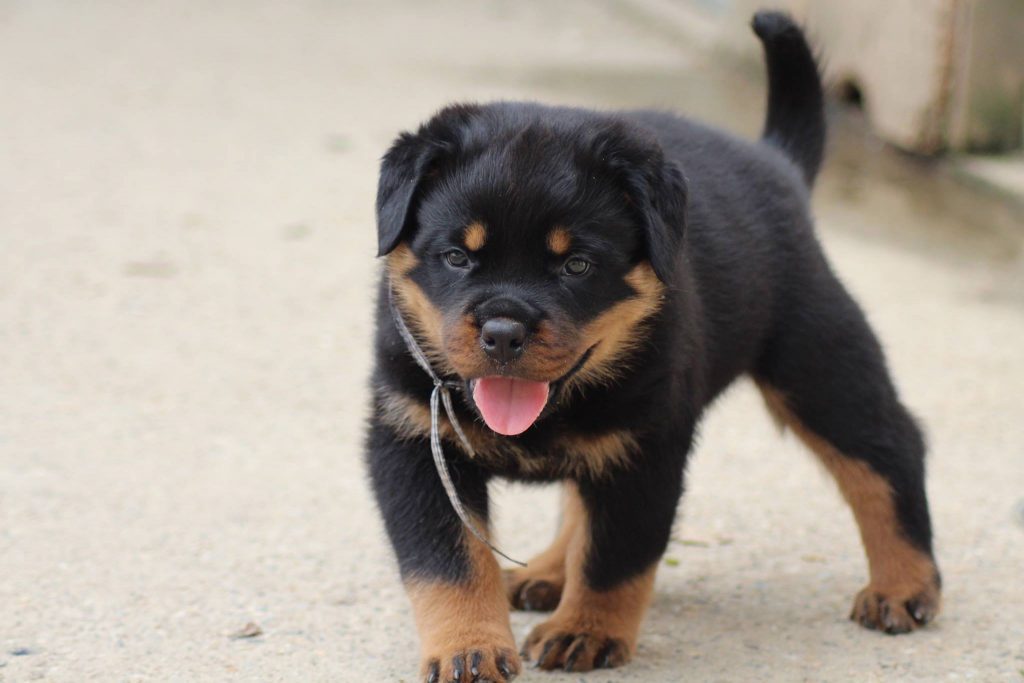
Training: Essential for a Balanced Dog
Training is not optional with a Rottweiler; it is a fundamental part of responsible ownership.
- Start Immediately: Begin socialization and puppy training classes the day you bring your Rottweiler home. Exposure to a wide variety of people, environments, and situations in a positive way is non-negotiable for building a stable temperament.
- Seek Professional Guidance: Enrolling in obedience classes with a knowledgeable trainer is highly recommended, especially for first-time Rottie owners. They need a confident, consistent leader.
- Use Positive, Firm Leadership: They respond best to a balanced approach: reward-based training for good behavior, combined with clear, fair boundaries and corrections. They respect strength and consistency.
- Give Them a Job: They need a purpose. Whether it’s advanced obedience, a canine sport like Schutzhund/IPO, or a “job” like carrying a backpack on walks, having a task is vital for their well-being.
Health: What to Be Aware Of
Rottweilers are unfortunately prone to several serious health conditions. Choosing a reputable breeder is the single most important factor in getting a healthy dog.
- Hip and Elbow Dysplasia: This is a major concern. Reputable breeders will provide Orthopedic Foundation for Animals (OFA) or PennHIP certifications proving their breeding dogs have healthy joints.
- Cardiac Conditions: Particularly Subaortic Stenosis (SAS), a serious heart defect. Breeders should have their dogs’ hearts cleared by a veterinary cardiologist.
- Cancers: The breed has a higher-than-average incidence of certain cancers, including bone cancer (osteosarcoma).
- Cruciate Ligament Tears: Their large, active frame puts them at risk for knee injuries.

Is a Rottweiler Right For You?
A Rottweiler might be your perfect match if you:
- Are an experienced dog owner who understands canine psychology and can provide firm, gentle leadership.
- Want a loyal, protective family guardian.
- Have the time and dedication for extensive daily exercise, training, and socialization.
- Are looking for a trainable partner for work or sport.
- Have a secure, fenced yard.
You should absolutely reconsider if you:
- Are a first-time dog owner.
- Want a dog that is immediately friendly with all strangers.
- Are unable to provide consistent rules, training, and socialization.
- Are away from home for long hours regularly.
- Are not prepared for potential breed-specific legislation (BSL) or higher homeowners insurance premiums.
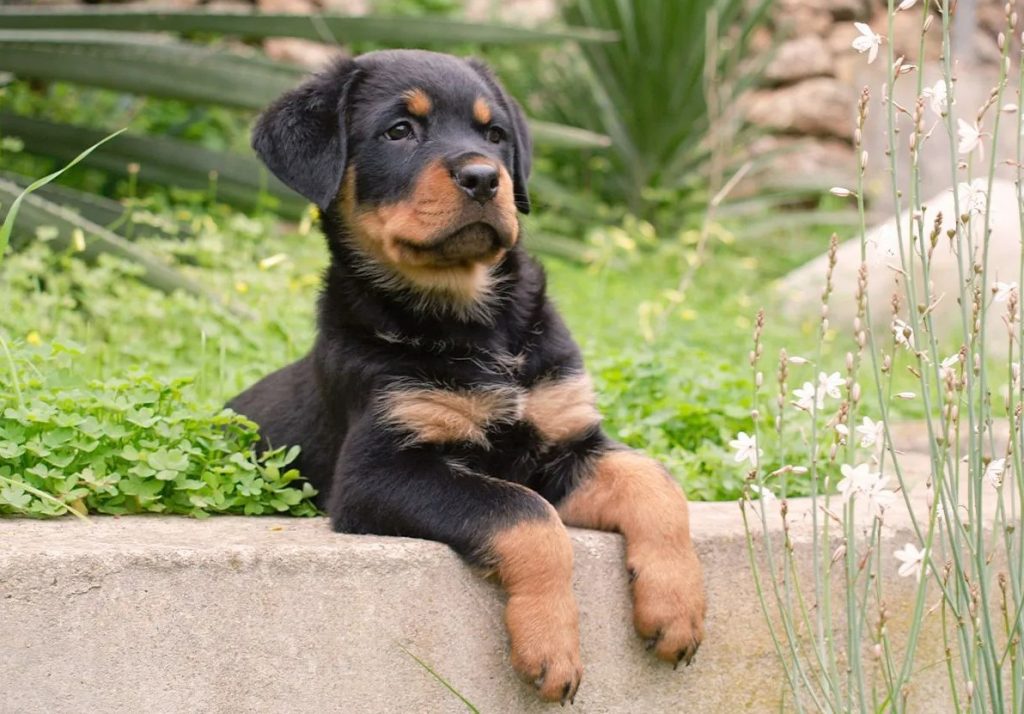
Finding Your Rottweiler
- Reputable Breeders: This is crucial. A responsible breeder will:
- Health Test: Provide OFA/PennHIP certifications for hips and elbows, a cardiac clearance from a cardiologist, and an eye exam clearance.
- Focus on Temperament: Breed for stable, confident, and sound nerves—not aggression or extreme shyness.
- Interview You Rigorously: They will want to ensure you have the lifestyle, experience, and home environment suitable for one of their puppies.
- Rescue & Shelters: Rottweiler-specific rescues are common. Many dogs end up there due to owners being unprepared for their strength and training needs. Adopting an adult can be a wonderful way to offer a second chance to a great dog.
Understanding the Cost: The initial purchase price from a reputable breeder in the U.S. is high, typically $1,500 to $3,000+, due to the extensive health testing. However, the lifetime cost of ownership is the real consideration. Owners must budget for high-quality food, potential veterinary care for common conditions, professional training, and liability insurance, which can be higher for this breed.
Bringing a Rottweiler into your life is a profound commitment. In return for your strong leadership, dedicated socialization, and unwavering care, you will gain the most loyal, courageous, and devoted companion imaginable—a dog whose love and protection for its family is truly boundless.

